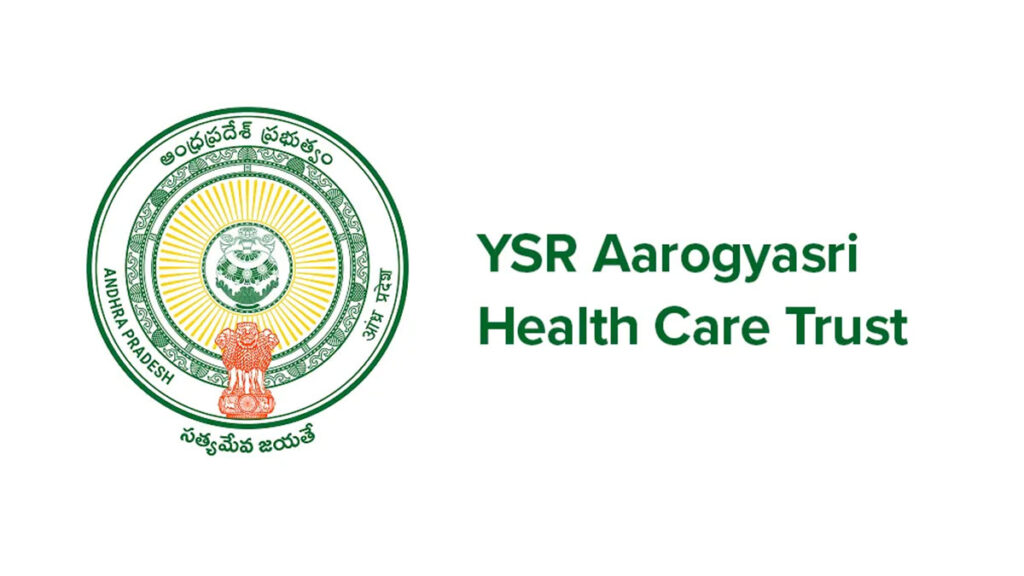The Dr. YSR Aarogyasri Scheme is a flagship health insurance program launched by the Government of Andhra Pradesh to provide free, quality healthcare to low-income families. Managed by the Dr. YSR Aarogyasri Health Care Trust, this scheme aims to achieve universal health coverage for Below Poverty Line (BPL) families and other eligible groups by offering cashless treatment for a wide range of medical procedures. Since its inception in 2007 under then-Chief Minister Dr. Y.S. Rajasekhara Reddy, the scheme has evolved significantly, with key updates in December 2023 expanding its scope and coverage. Below are the latest eligibility criteria based on official sources as of March 7, 2025.
Key Objectives of the Scheme
- Provide free quality hospital care to eligible families.
- Offer financial protection against catastrophic health expenditures.
- Strengthen government hospitals through demand-side financing.
- Ensure universal health coverage for the urban and rural poor of Andhra Pradesh.
Eligibility Criteria for YSR Aarogyasri Scheme
The eligibility for the YSR Aarogyasri scheme has been designed to prioritize BPL families while also including certain other categories based on income, land ownership, and property criteria. Below is the detailed and updated eligibility framework:
- Primary Beneficiaries: BPL Families with White Ration Cards
- Criteria: All families classified as Below Poverty Line (BPL) holding a valid white ration card linked with an Aadhaar card, as per the Civil Supplies Department database, are automatically eligible.
- Enrollment: No separate enrollment is required; coverage begins from the scheme’s implementation date in their area.
- Note: This includes families under specific ration card categories like Annapurna, Anthyodaya Anna Yojana, RAP (Regular Antyodaya Priority), and TAP (Temporary Antyodaya Priority).
- Income-Based Eligibility
- Criteria: Families with an annual income of up to ₹5 lakh are eligible, regardless of BPL status, following a significant expansion approved by the Andhra Pradesh Cabinet in December 2023.
- Evidence: For non-BPL families, proof of income via Income Tax Returns (ITR) showing annual income up to ₹5 lakh is required.
- Update: This change, announced on December 15, 2023 (via @ANI on X), aimed to cover approximately 90% of Andhra Pradesh’s population, making the scheme more inclusive.
- Land Ownership
- Criteria: Applicants must own less than 35 acres of land (combined wet and dry land).
- Details:
- Less than 12 acres of wetland, or
- Less than 35 acres of dry land, or
- A total of less than 35 acres (wet + dry).
- Source: This aligns with historical eligibility and remains unchanged as per ysraarogyasri.ap.gov.in.
- Property Ownership
- Criteria: Households paying municipal property tax for an area of less than 3000 square feet (334 square yards) are eligible.
- Purpose: This ensures coverage for families with modest residential holdings, excluding wealthier property owners.
- Vehicle Ownership
- Criteria: Families owning no more than one personal car are eligible.
- Exclusion: Ownership of multiple vehicles disqualifies applicants, reflecting an intent to target lower-income groups.
- Employment-Based Eligibility
- Eligible Categories:
- Employees (other than permanent government employees or pensioners) with an annual income of up to ₹5 lakh, including:
- Outsourcing employees
- Contract workers
- Part-time employees
- Sanitary workers
- Honorarium-based employees (e.g., in government or private sectors)
- Private sector employees
- Employees (other than permanent government employees or pensioners) with an annual income of up to ₹5 lakh, including:
- Exclusion: Permanent government employees and pensioners are not eligible, as they have separate health schemes like the Employee Health Scheme (EHS).
- Eligible Categories:
- Other Qualifying Cards
- Criteria: Holders of specific welfare cards issued by the Andhra Pradesh government, such as:
- YSR Pension Kanuka Card
- Jagananna Vidya Deevena Card
- Jagananna Vasathi Deevena Card
- Note: These cards indicate socio-economic vulnerability and automatically qualify holders for Aarogyasri benefits.
- Criteria: Holders of specific welfare cards issued by the Andhra Pradesh government, such as:
Key Updates as of December 2023
- Coverage Limit: The free treatment limit was increased from ₹5 lakh to ₹25 lakh per family per annum, effective December 19, 2023, as per the Andhra Pradesh government’s announcement (The Hindu BusinessLine, December 18, 2023).
- Population Coverage: The scheme now covers approximately 4.25 crore people (1.48 crore households), or about 90% of Andhra Pradesh’s population.
- Smart Aarogyasri Cards: Upgraded smart cards with QR codes were introduced to streamline access to diagnostic results, treatment status, and hospital information.
How to Verify Eligibility
- Online: Visit ysraarogyasri.ap.gov.in, log in with your credentials ( obtainable via the toll-free number 104), and check your status using your Aadhaar or ration card number.
- Offline: Approach an Aarogya Mithra at a network hospital, Primary Health Centre (PHC), or health camp with your white ration card or other qualifying documents.
Benefits of the Scheme
- Cashless treatment at 2,513 empanelled hospitals (government and private) across Andhra Pradesh.
- Coverage for over 2,000 medical and surgical procedures, including critical illnesses.
- Free screening, outpatient consultation, and follow-up care via health camps and network hospitals.
- No co-payment required; the government fully funds the premium and treatment costs.
How to Apply
- BPL Families: Automatically enrolled with a valid white ration card.
- Other Eligible Families:
- Visit ysraarogyasri.ap.gov.in or the Navasakam portal (navasakam2.apcfss.in).
- Download the “YSR Aarogyasri Health Card Performa” from the website.
- Fill out the form with details like family income, land holdings, and property tax.
- Submit it with supporting documents (e.g., ITR, ration card, Aadhaar) to the nearest concerned department or network hospital.
- Upon verification, a YSR Health Card is issued.
Contact Information
- Toll-Free Number: 104 (PAN India helpline)
- Helpline Numbers: 0863-2222802, 2259861, 8333817424/23/20/07
- Grievance Email: ap_grievance@ysraarogyasri.ap.gov.in (mailto:_grievance@ysraarogyasri.ap.gov.in)
- Address: Dr. YSR Aarogyasri Health Care Trust, D.No. 25-16-116/B, Chuttugunta, Guntur, Andhra Pradesh – 522004
Conclusion
The YSR Aarogyasri Scheme is a pioneering effort to ensure equitable healthcare access for Andhra Pradesh’s underserved populations. With its expanded coverage and updated eligibility criteria as of December 2023, it stands as one of India’s most inclusive state-sponsored health insurance programs.



